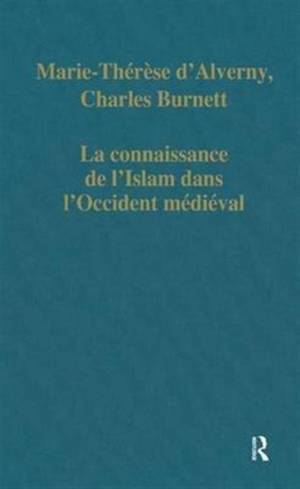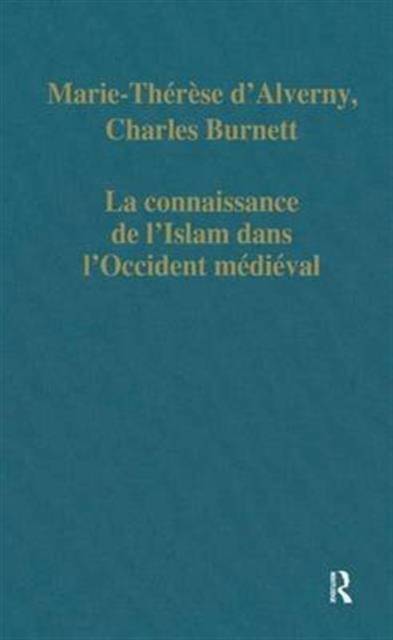
- Afhalen na 1 uur in een winkel met voorraad
- Gratis thuislevering in België vanaf € 30
- Ruim aanbod met 7 miljoen producten
- Afhalen na 1 uur in een winkel met voorraad
- Gratis thuislevering in België vanaf € 30
- Ruim aanbod met 7 miljoen producten
Zoeken
€ 221,95
+ 443 punten
Omschrijving
This volume, the second in the series of Marie-Thérèse d'Alverny's selected articles to be published by Variorum, gathers the majority of her studies on the understanding of Islam in the West from the early Middle Ages until the mid-13th century; some related works will be included in a further selection. In the 12th century, as she shows, a serious effort was for the first time made to learn something of the reality behind the fabulous and scurrilous stories about Muhammad and Islam. A collection of translations from Arabic, including the Koran, was commissioned in 1140 by Peter the Venerable of Cluny, and d'Alverny found the manuscript in which his secretary wrote these out. This discovery led her to explore other translations into Latin of the Koran and other Islamic texts, to identify the work of the translators Hermann of Carinthia, Robert of Ketton and Mark of Toledo, and to depict the milieu in which this work was possible.
Specificaties
Betrokkenen
- Auteur(s):
- Uitgeverij:
Inhoud
- Aantal bladzijden:
- 344
- Taal:
- Engels
- Reeks:
- Reeksnummer:
- nr. 445
Eigenschappen
- Productcode (EAN):
- 9780860784401
- Verschijningsdatum:
- 30/06/1994
- Uitvoering:
- Hardcover
- Formaat:
- Genaaid
- Afmetingen:
- 149 mm x 224 mm
- Gewicht:
- 589 g

Alleen bij Standaard Boekhandel
+ 443 punten op je klantenkaart van Standaard Boekhandel
Beoordelingen
We publiceren alleen reviews die voldoen aan de voorwaarden voor reviews. Bekijk onze voorwaarden voor reviews.











